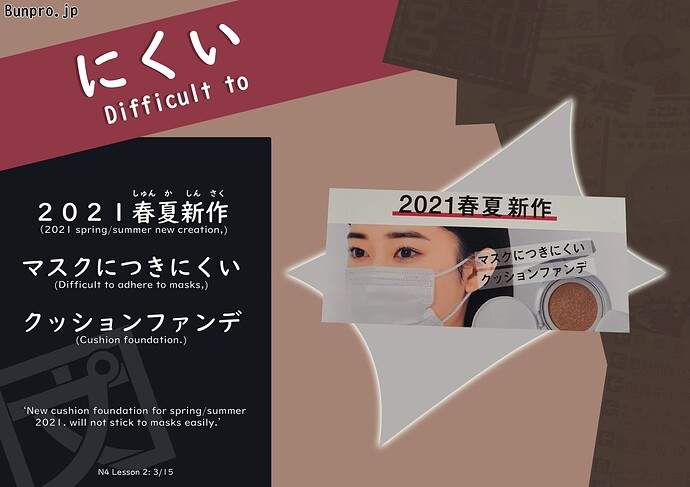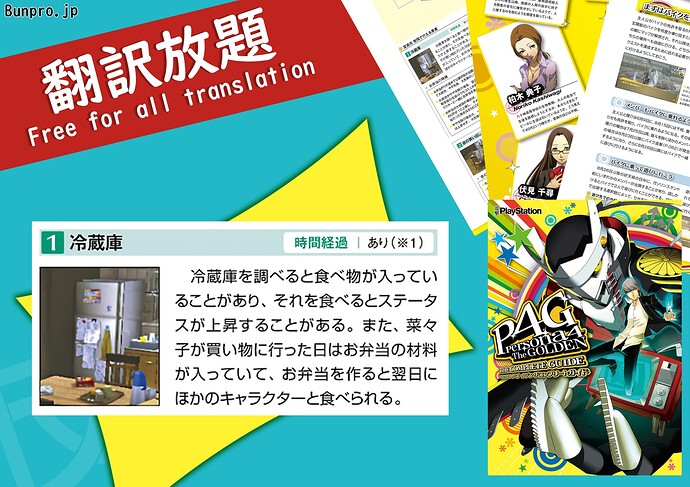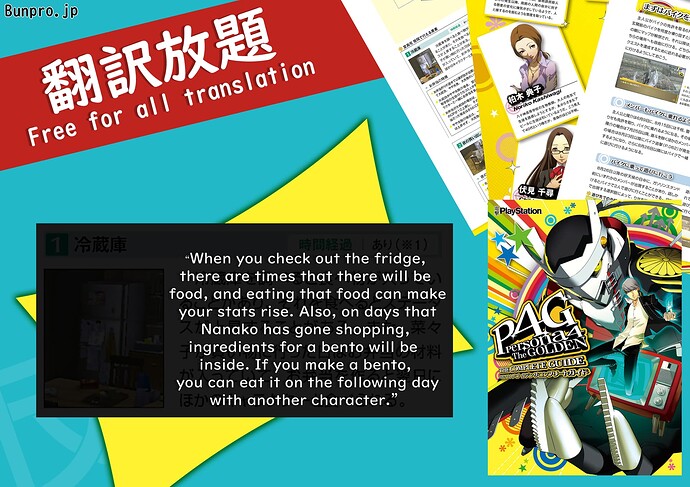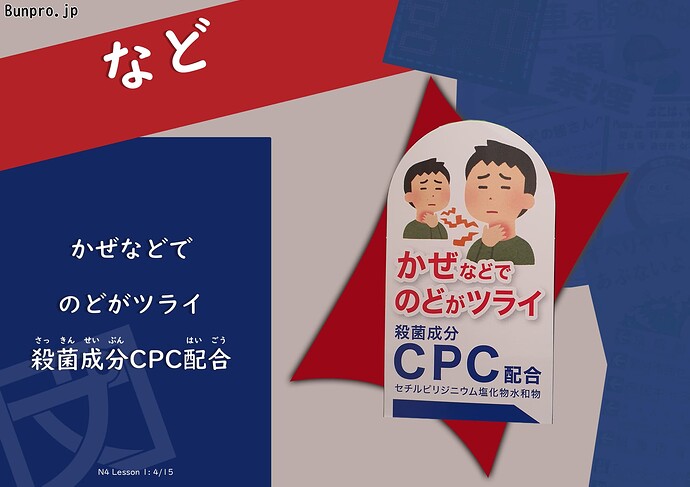Translation
冷蔵庫を調べると食べ物が入っていることがあり、それを食べるとステ-タスが上昇することがある。また、菜々子が買い物に行った日はお弁当の材料が入っていて、お弁当を作ると翌日にほかのキャラクタ-と食べられる。
冷蔵庫 = Refrigerator; Fridge
を = Indicates direct object of action
調べる = To examine; To look up; To investigate; To check up; To sense; To study; To inquire; To search
と = If / When
食べ物 = Food
が = Indicates sentence subject
入っている = ている-form of 入る (to contain; to hold; to accommodate) so 入っている = is contain + ing
こと = Circumstances; situation; state of affairs
があり = ありis apparently the old 終止形 (plain form) of ある, so this is the same as があるI guess. がある = to be / there is
それ = That
を = Indicates direct object of action
食べる = to eat
と = If / when
ステ-タス = Status
が = Indicates sentence subject
上昇 = Rising; Ascending; Climbing
する = To do
こと = Circumstances; situation; state of affairs
がある = To be / There is
また = Also; Too; As Well; Likewise
菜々子 = Nanako (name)
が = Indicates sentence subject
買い物 = Shopping
に行った = に行く (V + に行く) = to go / to go in order to. Past tense = に行った
日 = Day
は = Topic Marker Particle
お弁当 = Bento (I take it everyone knows this one, but in case not : Japanese Box Lunch)
の = Indicates Possessive
材料 = Materials; Ingredients
が = Indicates sentence subject
入っていて = 入っている but withて–form. The て-form is there to (I believe) establish a prior-posterior relationship with the main verb作る. Please correct me if I’m wrong on this one!
お弁当 = Bento
を = Indicates direct object of action
作る = To prepare (food); To brew alcohol
と = If / When
翌日 = Next day
に = At (place, time); In; On; During
ほか = Other (Place, Thing, Person); The rest; et al.
の = Indicates Possessive
キャラクタ- = Characters
と = With
食べられる = Potentioal form of 食べる → Can eat
Rough : Checking the fridge if it contains food, that if you eat status rises. Also, Nanako days went shopping, ingredients to make bento are contained. Obento make, next day with other characters can eat.
Natural : You can check to see if there is food in the refrigerator, if you eat it your status will rise. Also, on the days where Nanako went shopping, there will be ingredients to make a bento. If you make a bento you can eat it with the other characters the next day.
Longer texts are fun (and a bit easier as the context is very clear), though I don’t think I’m going to type out and deconstruct the next paragraph length one as I normally do, that beast took a while to type out even though I understood it on first reading 










